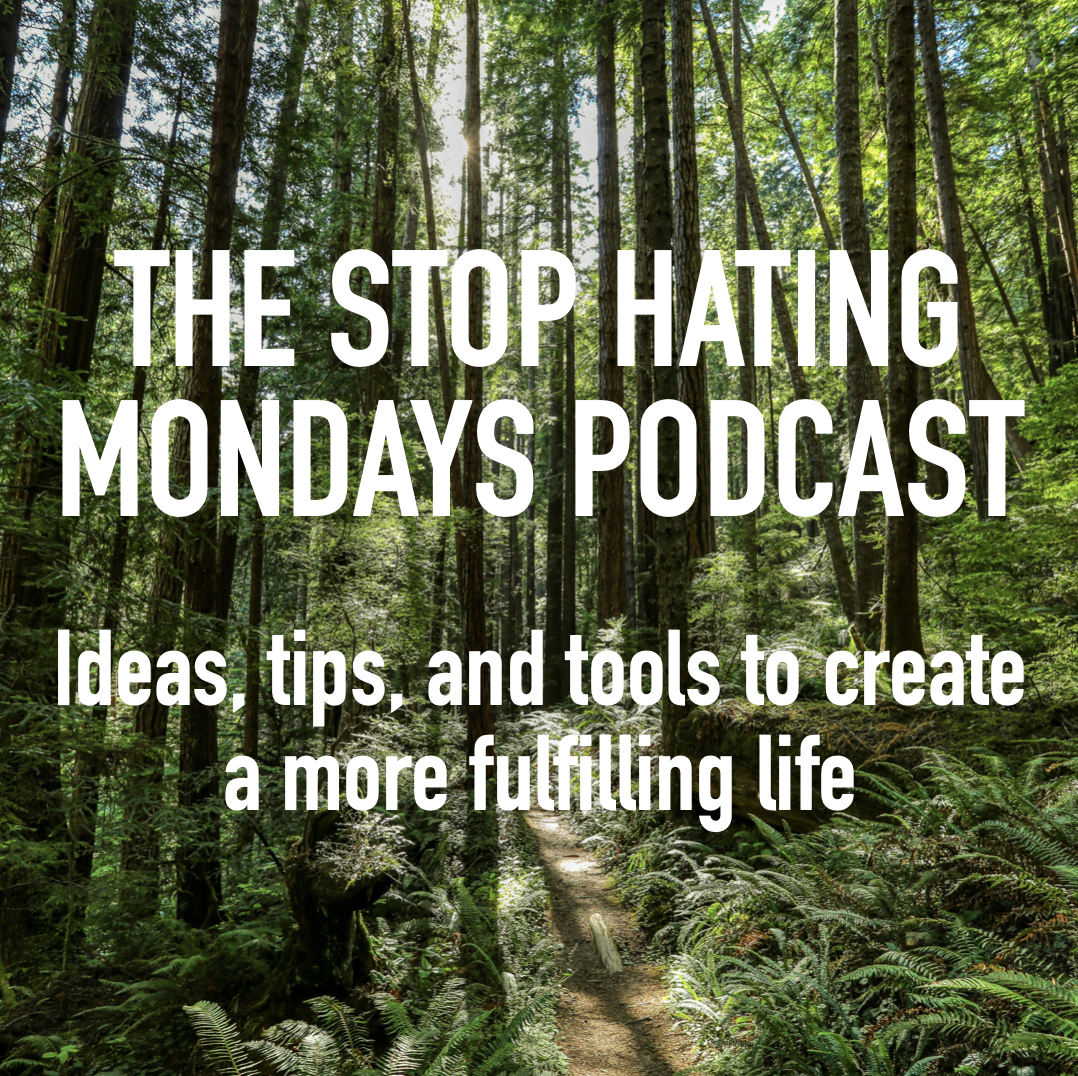How To Be Compassionate and Successful In The Workplace
Kent R.
Have you ever felt like you might be a lot more successful if you were less caring? Maybe if you were more Gordon Gecko and less Mr. Rogers, you’d earn more? You’d get that promotion? You’d demand more respect from your higher ups?
Maybe you would. But you’d also be a sociopath.
From Wall Street to Succession, we’re inundated with messages that tell us being less humanistic – less caring – is the secret to success. And many corporate profit models would seem to support that. But it’s not entirely true. On this episode of the Stop Hating Mondays Podcast, we’re tackling a big question: does being compassionate and humanistic make you less successful.
Subscribe to the Stop Hating Mondays Podcast on Apple Podcasts, Spotify, Google Podcasts, Stitcher, Amazon Music, or Overcast.
TRANSCRIPT
Caanan
Have you ever felt like you might be a lot more successful if you were less caring? Maybe if you were more Gordon Gecko and less Mr. Rogers, you’d earn more? You’d get that promotion? You’d demand more respect from your higher ups?
Maybe you would. But you’d also be a sociopath.
From Wall Street to Succession, we’re inundated with messages that tell us being less humanistic – less caring – is the secret to success. And many corporate profit models would seem to support that. But it’s not entirely true. On this episode of the Stop Hating Mondays Podcast, we’re tackling a big question: does being compassionate and humanistic make you less successful.
Caanan
I know this is a big topic, but we are talking about personal development and self-knowledge, so I thought it was a great time to bring this up. We got a question a while back from Liam who essentially asked the question I opened with. He said, my company is pretty cutthroat, and I feel like I care too much about my employees. I struggle to keep focused on the bottom line when I know they're being hurt by the decisions being made at the top.”
Kent
Oh man, yeah, it's a lot and again this is so interesting because we're sticking with general themes that have been coming up this entire season. It all relies on self-knowledge. The more you know yourself, the more you know that you've got an ideal way of operating an ideal environments to be in, and you should be working on moving toward those environments.
But with that knowledge you learned that other people operate in different ways and it's not bad. You know it's getting past this idea of “I don't like it, so I'm leaving. I want out of here.” This question reminds me of when I first became a manager and had a team of you know, 20 some people and those first times you have to let people go. If you're somebody who cares about letting people go, which, you know, you should be.
Little spoiler alert. You should never be so cold that you don't care. But to the point you made in the intro, there's a lot of people that don't care or put up a wall or so focused on their own success, whatever that definition is. That they are a little more hard-hearted. But you learn as I did back in that formative time that, just because I don't like terminating people doesn't mean that terminating doesn't and shouldn't happen in the workplace. Yeah, so you learn through self-knowledge through being a decent person that you can be simultaneously outstanding at “business,” and highly emotionally aware and highly humanistic.
A lot of people like Liam… You want to kind of feel like you need to live in a bucket and just like we've been saying regarding self-knowledge this entire season. It's not only about what you learn about you and who you are and what you need, but also how other people operate and how things realistically need to operate. So just that awareness will make somebody like Liam much more mindful of the fact that, like.
Is the company making me do something unethical? No. OK, this is where I have to exercise a muscle that isn't ideal for me, but I need to exercise this muscle to have an upwardly mobile career wherever I would work. So, it's using that self-knowledge to realize who you are and that this is just a piece of you that you're having to align with or or, you know, do something that's not a perfect fit for you. I think it's when people don't know who they are and they're flailing, things that don't feel right can take interestingly and overwhelmingly large amount of mind share because they don't have the self-knowledge to kind of calm that down, right? Like OK, I've got to terminate 3 people today. This isn't who I am. Everything's all lined up. They do deserve to be terminated. You know, all the boxes have been checked. This is just a mode I have to go into. It doesn't mean I'm not humanistic, it doesn't mean I'm not caring.
I think that people that don't have that self-knowledge just feel terrible, and it's because they're not grounded in who they are. And we talked about in a recent episode. A success language, and if you know your personal success language, not the success language of your work group or the planet or your family, you're much more grounded in what matters to you. And if you're grounded in what matters to you, you know what other people need. You know authentically what they need.
So in the case of having to terminate people or, in Liam's case, he knows people are being hurt by the decisions being made at the top. You know how to handle things to get done, what you need to get done, as long as it's ethical – never do anything unethical – but how to keep people whole at the same time?
Caanan
OK, so something you said I. Really want to dive into because I think most of our listeners can relate to it and it'll be really helpful.
So you need to let people go or cut headcount, whatever you want to use for firing people, but you know how devastating this is going to be to those people. So how do you suggest somebody handle that like emotionally handle letting people go when they know it's going to be really?
Kent
Hurtful, yeah, well, let's go back to what I alluded to in my last response. Me being a new manager managing close to 30 people and, of course, performance management was a big part of that and not everybody was performing well. A strategy I used to let my humanistic relater side shine was to be very true to my belief that nothing should come as a surprise to people. So with people I had to let go, I was always that person who was very clear about the writing on the wall. Of course, often you're not telling people you're going to get fired in 18 months if this doesn't happen, but you know the metrics that that's based on. And it's about having those weekly one on ones. Giving people clear information and for me it got to the point where in final one on ones the conversation became about. This is not the environment for you. You know we've tried these things, these things, these things. So honestly, in most cases, well before I was due to terminate, most of these people they had already left because. This we had such an open relationship about performance and again not specifically termination, but it was very clear in a very loving bubble that this was the expectation. This is how you're living up to or not living up to that expectation, and we know what happens when people don't meet expectations. So there's no surprise. No Fear based games. Just honest information and I think, again, when people don't know themselves when they don't know how to be both businesslike and humanistic, they kind of failed at both things because they're just in fear. But there is a way to handle this. Keeping yourself emotionally, saying – which is specifically what you asked, and keeping the other person emotionally sane – and that is being honest. Treating people like they matter; nobody wants to be surprised. You know it really. It comes down to… I'm walking right into the old adage like treat others the way you would want to be treated.
Caanan
Well the new way, “treat others the way they want to be treated.”
Kent
More you do that, the more you can tap into that. Things that are “devastating,” hurt a little less because I think if somebody knows your heart is in it and you're not just – in the case of terminating – dismissing them emotionlessly. They know, they know that you've done all you can do.
Caanan
All right, last question of the season Kent. We got a question from Andrew, that I think is the perfect way to end this episode and the season. He said, “I feel like my values don't align with my company's values. Can I be successful here?”
Kent
Yes, Andrew. We are getting a lot of these questions this season. And with the great resignation and a bit of employment hopping and soul searching, I'm not surprised.
So to keep this as succinct as possible, I'll say you'll never feel ultimately successful if you're not living in alignment with your values. When I say living, I mean. All the roles that make up the one you, your personal life, your work, life. So if you're values are in line with the company values – you're telling me that that matters to you, and I bet your personality test would say the exact same – so you need to work towards getting away from that company.
Yes, you can be successful there, but why would you want to be successful there? Because you're going to find plenty of companies, especially now, whose values align with yours, your goals should be to align all the facets of your life – work you, community you, family you – with what you know about your strengths, your values, and your passion. And you can still move towards success in whatever situation you're in while you gradually or quickly chip away at that larger movement.



